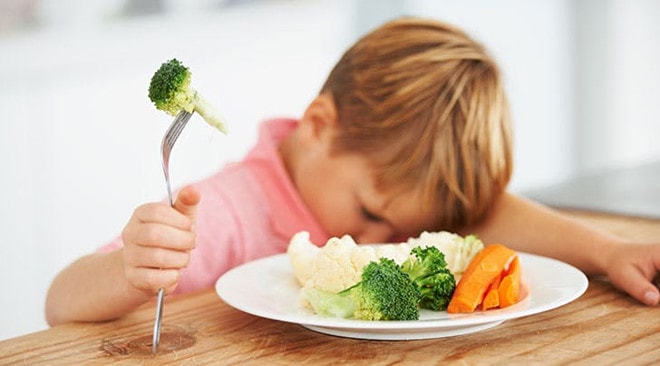Force-feeding your child - little benefit, much harm
This action makes children lose freedom to explore food, even leading to anorexia.
In a 14-year study by Dr. Mamun AA's group, University of Queensland (Australia) on the thoughts of 2,560 parents about their children's weight and healthy weight gain from birth to weaning, 4 years old and 14 years old.
The results showed that 50% of parents thought that their children were not growing well (poor growth). In fact, according to experts' assessment at the time of the study, the children were growing normally, and many even tended to be overweight. The experiment also showed that worrying about not gaining weight affects the way parents interact with their children's meals, which can lead to poor eating behavior later on.
This will become a nightmare for many parents when taking care of their children. According to Dr. Anh Nguyen (Member of the British Association of Clinical Nutrition, Pediatric Nutrition Specialist, University of Worcester), parents can follow the following three steps to improve this situation.
Step 1: Understand how to properly assess weight gainThis is done by weighing at least twice, 8 weeks apart. Typically, we advise parents to monitor their weight over 3 weighings and look at the trend on the growth chart. If the child has been ill, an additional 3-4 weeks is recommended, depending on the specialist’s assessment of when the child is actually cured.
|
| Parents should monitor weight over three weighings and look at the trend on the growth chart. Photo:Purewow |
Parents should know that a child with anorexia does not necessarily have poor growth. In fact, many children with anorexia can still grow at a normal rate if properly assessed.
Step 2: Keep a balanced mind during mealsTo help your baby eat and enjoy eating, parents should maintain a balanced mental state, avoid scolding, threatening... Encourage your baby to eat with the family or with other children (if possible).
Mothers should also avoid neglecting their children's meals, and should feed them on time to create good eating habits. If your child is a picky eater, you can reduce the portion by 30-50% and increase the number of times or foods that provide more energy.
Mothers also need to pay attention to the balance of nutrients in meals. Avoid feeding children with a diet that is biased towards protein and fat because the child does not gain weight evenly. According to research by Weber, University of Munich (Germany), if children eat too much protein in the first years of life, the risk of being overweight and obese is 2.43 times higher than normal children.
When choosing milk for your child, you also need to maintain a balanced mentality. Do not be too eager to gain weight quickly and choose milk with inappropriate nutritional ingredients. Parents should choose milk with quality protein and appropriate nutrients for their child to gain weight healthily.
Mothers can also take turns feeding their babies, sharing this with fathers, grandparents, or other family members. In fact, I have found that many fathers have special skills to help children eat. A survey study by Darcy L. Johansen, South Dakota State University, of 68 fathers shows that the role of fathers is also important in developing children's eating behavior practices.
|
| Mothers can also take turns feeding the baby, sharing this with fathers, grandparents or other family members. Photo:BabySling |
Playing will help children use and recharge their energy. Children should play for about 30 minutes a day. For hyperactive children, you can reduce the time they use energy through some gentler activities such as coloring, arranging letters, etc.
Anorexia is mostly temporary, but if parents exert too much influence on their children's psychology while eating, it can have long-term effects. Think of ways to make children more interested in learning eating behavior and find ways to feed them a lot at each meal.
Advice for parents:
- You can reduce your meal portions by up to 50% and divide your meals into smaller portions throughout the day or combine energy-rich foods.
- Take turns feeding the baby with the father. The father feeds the baby differently from the mother.
- Maintain an active lifestyle for young children to help them use their digestive system well and restore energy.


